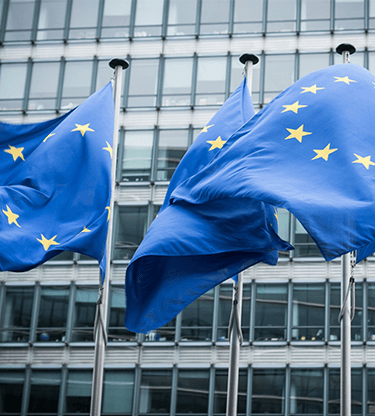Daily Brief

European angst
4 minute readPlenty of nothing
On the whole, from a currency point of view, Friday was quiet and Monday was quieter. Sterling was unchanged against the EUR, CHF, CAD and NZD, and on average against the major currencies. The USD and JPY took first and second place while the NOK once again brought up the rear.
Also once again, investors were less than enthusiastic about global equity markets. That was reflected in gains of two thirds of a cent for the US dollar and two thirds of a yen for the Japanese currency, both safe havens.
The economic data were neither here nor there, partly because they pointed in different directions and also because there were too few of them to be statistically significant. German business confidence deteriorated, but not by enough to shape attitudes to the euro. Activity measures from the Federal Reserves in Chicago and Dallas were, respectively, stronger and weaker on the month. The various central banker appearances delivered little. The European Central Bank’s Christine Lagarde spoke about “a very high level of uncertainty”. Jens Weidmann at the Bundesbank expressed an appetite for green assets, although “price stability not saving the planet remained the ECB’s top priority”.
European politics
Three political stories gained prominence. Italy’s Prime Minister intends to resign today so that he can form a new government, the European Commission is unhappy with Astrazeneca and the UK government has an oven-ready trade deal with the Biden administration. None is quite what it seems and all three have the potential to muddy the currency waters.
In Rome, Giuseppe Conte plans to resign as Prime Minister today, in order to avoid losing a Senate confidence vote later this week. It is a high-risk strategy but also one that has been employed successfully in the past. A functioning government will be necessary if Italy is to distribute its share of the EU Covid rescue fund.
In Brussels, the European Commission has issues with Astrazeneca’s failure to keep up with the promised pace of Covid-19 vaccines. The implicit threat is that the EC might restrict exports of the vaccine to Britain.
In London, UK Trade Secretary Liz Truss told an interviewer the majority of the text of a trade deal with America has already been completed. Ms Truss said that the agreement would not be rushed, implying that it will be just as good as the deal Britain has struck with the EU.
The jobs are working
This morning’s UK employment data were adequate, in that every important component was better than forecast. However, with large numbers of people on furlough and other government support schemes, investors suspect that the data misrepresents the real picture.
Jobless claims went up by 7k in December, only a fifth of the expected increase. The rate of unemployment edged up from 4.9% to 5%, where 5.1% had been predicted. Average earnings, both with and without bonuses, were up by an annual 3.6% in November. Initial analysis of the figures revealed no obvious bear traps.
The rest of the day has little promise, with only US house prices and consumer confidence. Not in Davos, the World Economic Forum proceeds online. Speakers today include the President of South Africa, the President of the European Commission, the German Chancellor and the French President.
Weekly roundup



